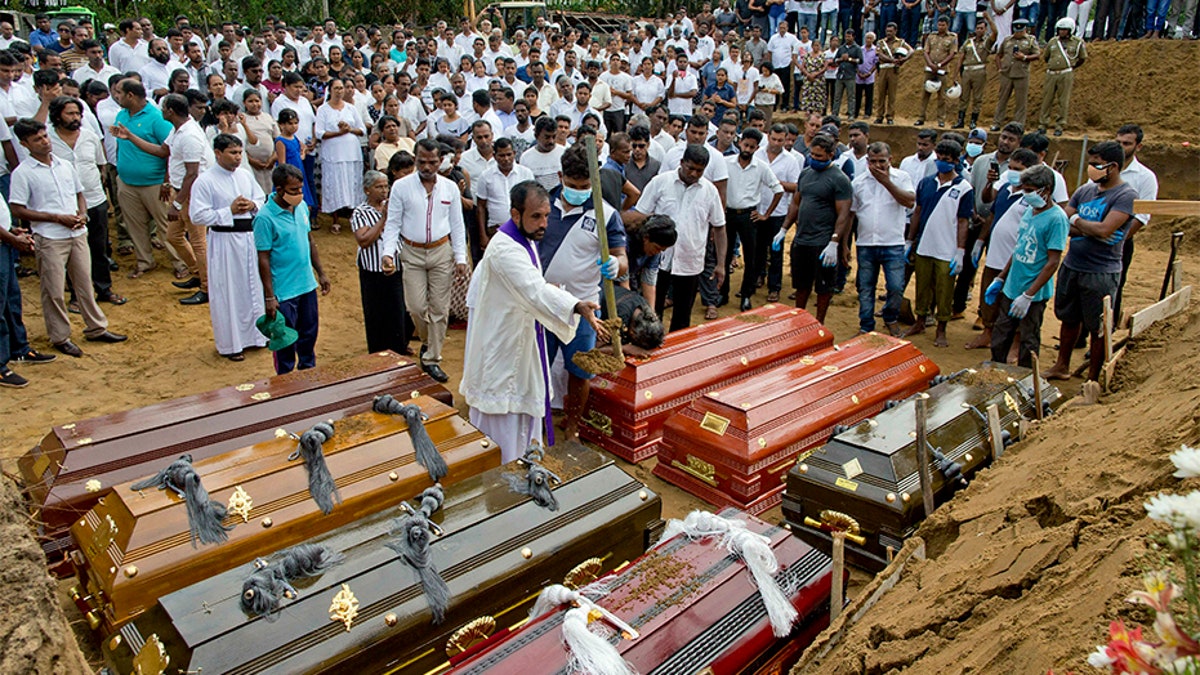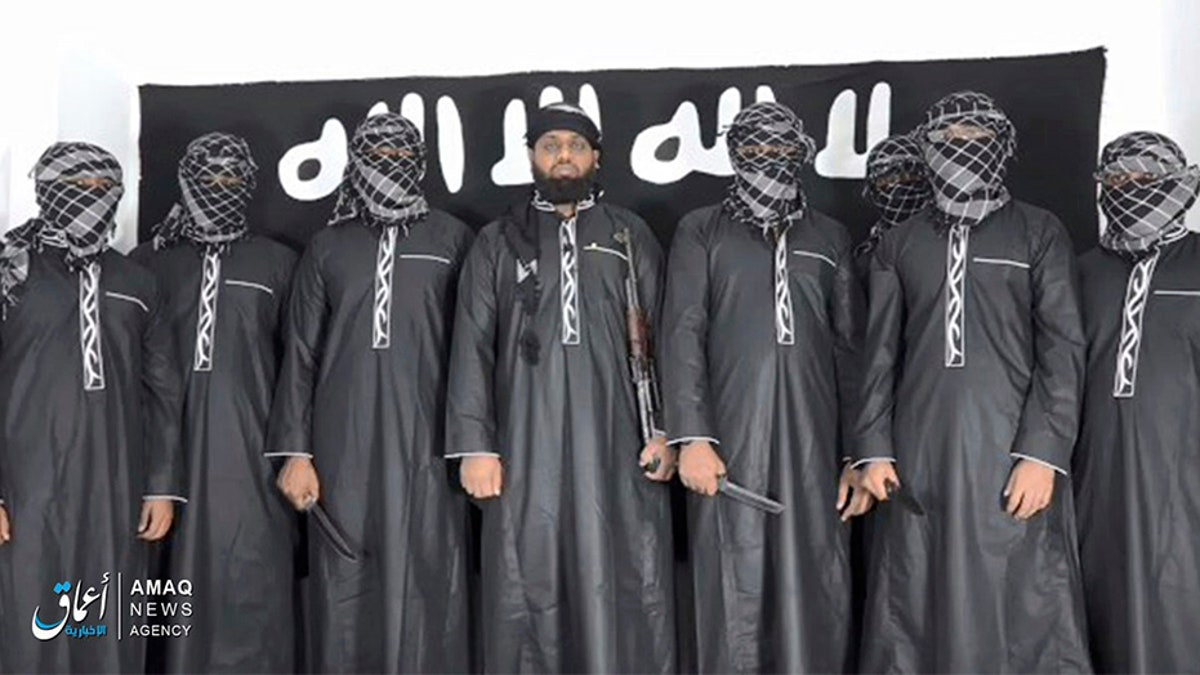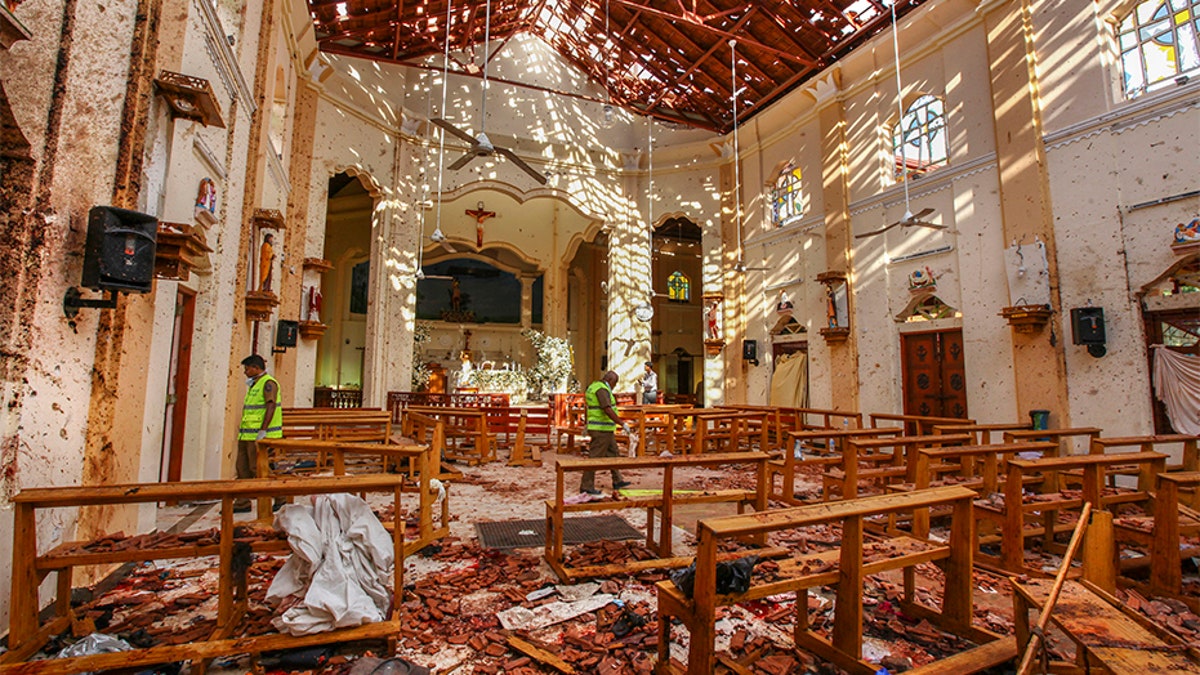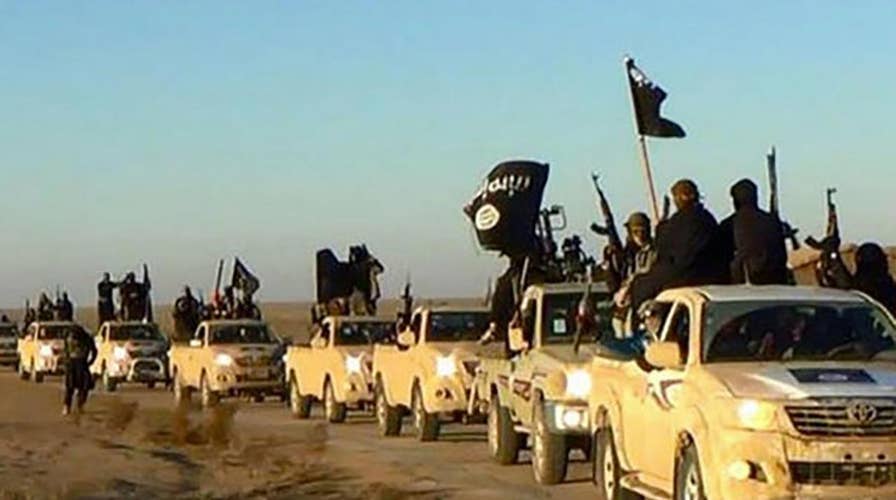Are we witnessing a resurgence of ISIS?
Terror group ISIS claims credit for Easter Sunday terror attack in Sri Lanka; reaction from former Special Operations intel analyst Brett Velicovich.
Sri Lanka's president has called for the resignations of the country’s defense secretary and national police chief Wednesday after officials admitted to suffering a “major lapse” in communications in the lead-up to the Easter Sunday bombings, which have left more than 350 people dead.
The announcement comes as officials also revealed that the nine suicide bombers responsible for the attacks were “quite well-educated people” who are believed to have studied abroad and obtained degrees in places like the U.K. and Australia before returning to their homeland. Two of those bombers, they added, were a husband and wife duo.
"It was a major lapse in the sharing of information," deputy defense minister Ruwan Wijewardene told reporters Wednesday, according to AFP, just minutes before news broke that his boss may be on the way out. "The government has to take responsibility."
It wasn’t immediately clear who would replace the two key officials, but President Maithripala Sirisena said during a televised speech Tuesday that he planned to change the head of the defense forces within 24 hours.

A priest conducts religious rituals during a mass burial for Easter Sunday bomb blast victims in Negombo, Sri Lanka, on Wednesday. (AP)
The looming shakeup in Sri Lanka’s leadership follows widespread criticism directed at its government for failing to act on warnings it received about the bombers in the days leading up to the attacks. Its top officials have issued and then walked back numerous statements in the aftermath, such as the affiliations of the bombers and possible ties to a recent mass shooting in New Zealand. The statements often have been made without any supporting evidence, adding to the confusion as investigators are still searching for answers. The official death toll on Wednesday rose to 359.
“We believe that one of the suicide bombers studied in the U.K. and later did his postgraduate in Australia before coming back and settling in Sri Lanka,” the Guardian quoted Wijewardene as saying Wednesday.
“This group of suicide bombers, most of them are well-educated and come from middle or upper-middle class, so they are financially quite independent and their families are quite stable financially, that is a worrying factor in this,” he added. “Some of them have I think studied in various other countries, they hold degrees, LLMs [law degrees], they’re quite well-educated people.”
Investigators also told the AFP that two of the bombers were sons of a wealthy spice trader in Colombo – Sri Lanka’s capital and site of many of the attacks. Two others, according to police spokesman Ruwan Gunasekara, were a husband and wife duo.
That woman, two children and three policemen are said to have died in an explosion as authorities closed in on her late Sunday, hours after attacks were launched against three churches and three hotels.

This undated image posted by the Islamic State group's Aamaq news agency on Tuesday purports to show Mohammed Zahran, a.k.a. Zahran Hashmi, center, the man Sri Lanka says led the Easter attack that killed more than 350 people, as well as other attackers.
OCASIO-CORTEZ CALLED OUT FOR SOCIAL MEDIA SILENCE IN WAKE OF SRI LANKA ATTACKS
Gunasekara said 60 people have been arrested so far, while U.S. Ambassador Alaina Teplitz confirmed that a team of FBI agents and U.S. military officials are helping in the investigation.
Teplitz told reporters Wednesday that "clearly there was some failure in the system," but said the U.S. had no prior knowledge of a threat before the attacks, the worst violence in the South Asian island nation since its civil war ended a decade ago. She described the breakdown in communication amongst Sri Lankan officials as "incredibly tragic."
Sources close to the investigation told The Guardian that up to nine people linked to the bombings could still be at large. Among those arrested so far are six Pakistani refugees, including two women and two children. A police official says security footage and telephone records indicated that the refugees may have been in contact with one of the alleged church bombers, it added.

A view of St. Sebastian's Church damaged in suicide blast in Negombo, north of Colombo, Sri Lanka. (AP)
Sri Lankan authorities had earlier blamed a local extremist group, National Towheed Jamaar, whose leader, alternately named Mohammed Zahran or Zahran Hashmi, became known to Muslim leaders three years ago for his incendiary online speeches. On Wednesday, Wijewardene said the attackers had broken away from National Towheed Jamaar and another group, which he identified only as "JMI."
Teplitz declined to discuss whether U.S. officials knew about National Towheed Jamaar or its leader before the attack. "If we had heard something, we would have tried to do something about this," Teplitz said.
CLICK HERE TO GET THE FOX NEWS APP
Wijewardene also edged away from comments he made Tuesday that the bombings were retaliation for the March 15 mosque shootings by a white supremacist in Christchurch, New Zealand, that killed 50 people. He told reporters Wednesday that the mosque attack may have been a motivation for the bombings, but that there was no direct evidence of that.
New Zealand's Prime Minister Jacinda Ardern said Wednesday she hasn't received any official advice from Sri Lanka or seen any intelligence reports to corroborate the claims.
The Associated Press contributed to this report.







































